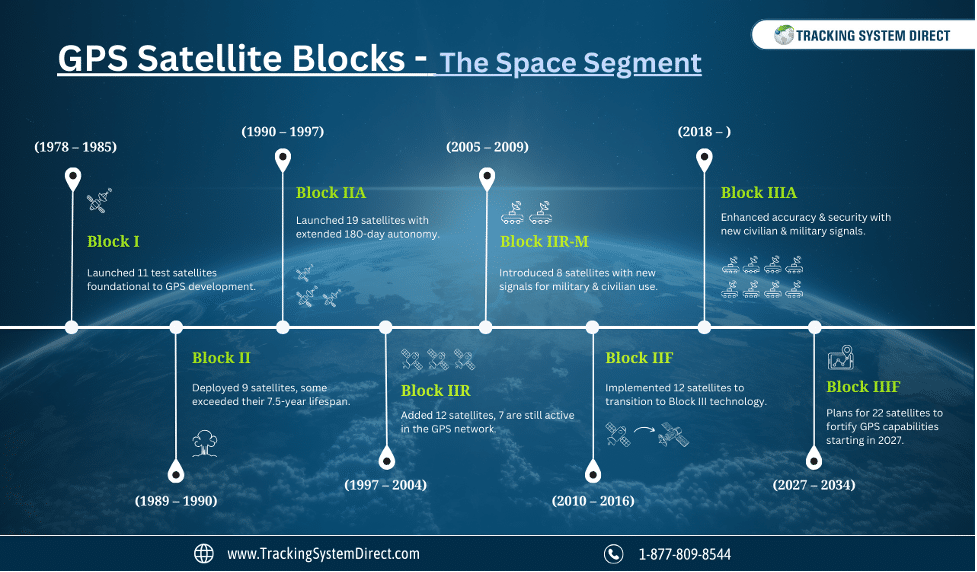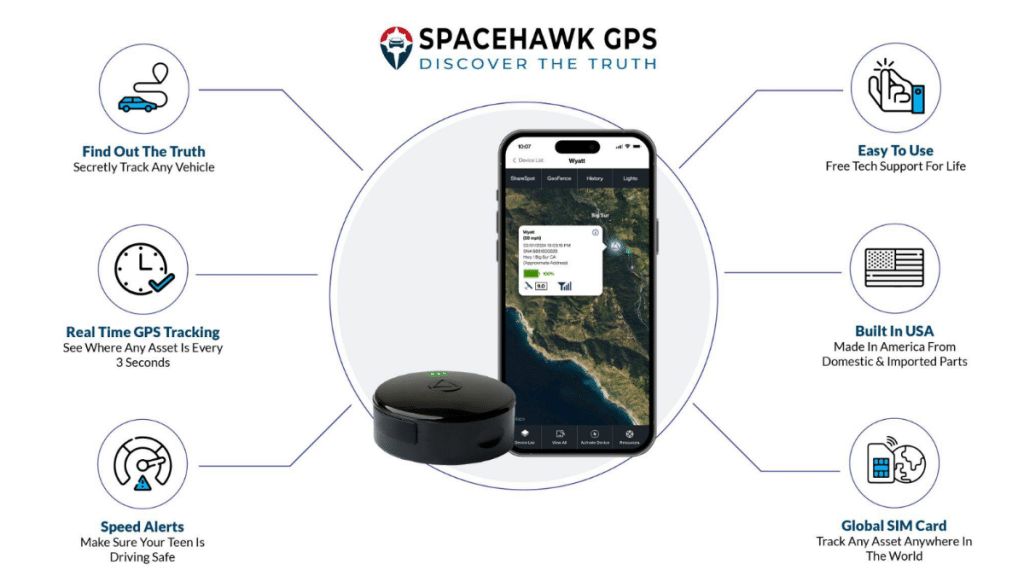Are you seeking ways to enhance your business operations from inventory to delivery? This article explores how GPS tracking technology can significantly improve your processes. You’ll learn about the benefits of real-time tracking, theft prevention, and streamlined audits. Additionally, discover how integrating GPS trackers with your existing systems can optimize transportation and boost efficiency. If you want to understand the financial advantages and cost savings that GPS technology can bring to your business, we got you covered! Let’s start with the basics by going over the role of GPS in inventory management.
The Role of GPS Trackers in Inventory Management
GPS trackers play a crucial role in real-time inventory tracking. How? First of all, they allow you to monitor inventory with pinpoint accuracy. By using GPS technology, you can see the exact location of your assets at any given moment. This level of oversight helps prevent losses and boosts efficiency.
Accurate inventory data brings multiple benefits to your business. You can reduce stockouts and overstock situations. With real-time insights, you make better purchasing decisions. This improves your bottom line and customer satisfaction. A study by the Loss Prevention Research Council found that businesses using real time GPS trackers experienced a 25% reduction in inventory shrinkage. Pretty cool, right?
Here’s how this works step by step in a real-world example:
- Warehouse Monitoring: GPS trackers are attached to pallets or containers in the warehouse.
- Real-Time Updates: As the pallets move, their locations are updated in real time on the tracking system.
- Supply Chain Integration: The GPS system integrates with your supply chain software, providing visibility at each stage.
- Inventory Management: You can see which items are in transit, in storage, or delivered, allowing for better stock management.
- Loss Prevention: Immediate alerts if a tracked item deviates from its intended path, helping prevent theft or loss.
- Decision Making: Access to real-time data allows for informed purchasing and inventory replenishment decisions.
- Customer Satisfaction: Accurate tracking ensures timely deliveries, enhancing customer satisfaction and loyalty.
The SpaceHawk mini GPS tracker is one of the most commonly used GPS asset management solutions among businesses.

Real-Time Location Tracking
GPS tracking devices provide up-to-date information on inventory location. Consequently, this real-time tracking is invaluable for managing assets. For instance, you can track items as they move through your supply chain. Knowing the exact location of your inventory, therefore, reduces uncertainty and delays.
Moreover, various industries benefit from this location-based technology. Specifically, retailers use GPS trackers to manage stock between warehouses and stores. Likewise, manufacturers track raw materials and finished goods throughout the production process. Additionally, logistics companies monitor shipments, ensuring timely deliveries. Overall, this technology adapts to different needs, thereby enhancing efficiency.
You can learn more about how real-time location tracking works here: https://www.trackingsystemdirect.com/how-gps-works/
Reducing Theft and Loss
GPS trackers significantly deter theft and assist in recovery. They provide real-time alerts when unauthorized movements occur. This allows you to act quickly, preventing potential losses. Knowing that assets are tracked discourages theft.
Several businesses have successfully reduced losses with GPS trackers. For instance, Turner Construction reduced theft-related losses by 30% within a year by implementing GPS tracking systems on their equipment. A case study by Savi Technology showed a logistics firm recovering stolen goods worth $50,000 thanks to GPS tracking. These examples highlight the practical benefits of using this technology.
Streamlining Inventory Audits
Precise location data from GPS trackers simplifies the audit process. You can quickly verify the presence and location of each item. This reduces the time and labor required for audits. Accurate data leads to more reliable audit results.
Efficient audits have a significant impact on your operations. They ensure inventory records match physical stock, preventing discrepancies. Improved accuracy boosts trust in your data, aiding decision-making. Streamlined audits also free up resources for other critical tasks. This enhances overall productivity and profitability.
![]()
Integrating GPS asset trackers into your inventory management offers immense advantages. They provide real-time location tracking, reduce theft, and streamline audits. With accurate data, you can optimize your inventory processes and improve your business performance.
Optimizing Transportation and Delivery with GPS Trackers
GPS trackers have revolutionized transportation and delivery systems. They offer solutions to common fleet management challenges. With their help, you can optimize routes and monitor vehicle usage efficiently. This leads to better fleet management and operational efficiency. How? Let us take a closer look!
Improving Fleet Management and Efficiency
Managing a fleet comes with numerous challenges. These include route planning, fuel consumption, and vehicle maintenance. GPS vehicle trackers provide real-time data to address these issues effectively. They allow you to monitor each vehicle’s location, usage, and performance.
By using GPS trackers, you can optimize routes and improve vehicle usage. Real-time data helps in adjusting routes based on current conditions. This reduces travel time and fuel consumption. For example, fleet managers can identify shorter or less congested routes, saving time and costs.
Route Optimization
GPS fleet trackers offer real-time traffic updates and route adjustments. They help you avoid traffic jams and road closures. This ensures timely deliveries and reduces fuel costs. With optimized routes, your fleet can cover more ground efficiently.
Reduced travel time and fuel consumption bring significant benefits. Lower fuel costs directly impact your bottom line. Additionally, timely deliveries enhance customer satisfaction. Real-time route optimization ensures your fleet operates at peak efficiency.
Monitoring Driver Behavior
GPS trackers play a crucial role in monitoring driver behavior. They ensure driver safety and compliance with regulations. By tracking driving patterns, you can identify and correct unsafe behaviors.
Monitoring driver behavior reduces accidents and improves delivery times. For instance, GPS Tracker Shop stated that companies who utilized their AI dash cams for fleet management saw driver safety and productivity increase substantially. In fact, improved driving habits lead to fewer incidents and more efficient deliveries. “We have worked with numerous small and large businesses over the last decade, and every time a company invested in a fleet management tool, whether that be GPS tracking or dash camera technology, they were always happy with results”, stated Ryan Horban VP of Operations at GPS Tracker Shop.
Integrating GPS Tracking into Overall Business Operations
Integrating GPS trackers with your existing systems can significantly enhance your business operations. GPS asset trackers can be seamlessly integrated with Enterprise Resource Planning (ERP) systems and other business software. This integration provides a unified approach to managing your operations.
When GPS trackers integrate with ERP systems, you gain a holistic view of your operations. Real-time GPS data flows directly into your ERP, enhancing visibility and control. This unified approach allows you to make informed decisions based on accurate, up-to-date information. It streamlines processes and reduces the need for manual data entry, saving time and reducing errors.
Data Analytics and Reporting
GPS data offers valuable insights for comprehensive business analysis. By utilizing this data, you can track key metrics and improve your decision-making. GPS trackers provide detailed reports on various aspects of your operations.
Some key metrics tracked by GPS systems include vehicle usage, route efficiency, and driver behavior. For example, tracking fuel consumption helps identify areas for cost savings. Monitoring driver behavior can lead to improved safety and reduced accidents. Analyzing these metrics allows you to optimize your operations and enhance overall efficiency.
Cost Savings and ROI
Integrating GPS tracking devices into your business operations offers substantial cost savings and a high return on investment (ROI). By providing real-time data and insights, these devices help optimize routes, monitor driver behavior, and enhance overall efficiency. The following table highlights various GPS tracking devices, their installation methods, and the benefits they offer. Understanding these options allows you to select the best solution for your needs, ensuring seamless integration and maximum financial returns. Investing in GPS technology not only improves operational efficiency but also contributes to significant cost reductions and enhanced asset management.
| Device Type | Cost Savings | ROI |
| OEM (factory-fitted) devices | Reduces initial setup costs by integrating with new vehicles | Improves fleet efficiency and vehicle lifespan, enhancing long-term ROI |
| Plug-in devices | Low-cost and easy to install, reducing labor expenses | Provides real-time location data, increasing operational efficiency |
| Aftermarket GPS devices | Prevents tampering and potential theft, lowering replacement costs | Adds advanced monitoring features, improving overall asset management |
| Smartphone or tablet | Utilizes existing devices, minimizing additional hardware costs | Streamlines administrative tasks, increasing productivity |
| Asset and trailer tracking devices | Monitors both powered and unpowered assets, optimizing resource use | Enhances asset security and utilization, leading to higher ROI |
Frequently Asked Questions
Can GPS trackers reduce theft and loss in business operations?
Yes, GPS trackers can effectively reduce theft and loss. They provide real-time alerts when unauthorized movements occur, allowing you to act quickly. Knowing that assets are tracked discourages theft, as potential thieves are aware of the monitoring. Several businesses have successfully reduced losses with GPS asset trackers, showcasing their practical benefits.
What are the benefits of integrating GPS trackers with ERP systems?
Integrating GPS devices with ERP systems provides a unified approach to managing operations. Real-time GPS data flows directly into your ERP, enhancing visibility and control. This integration streamlines processes and reduces the need for manual data entry, saving time and reducing errors. It allows you to make informed decisions based on accurate, up-to-date information.
Can GPS data be used for business analysis?
Yes, GPS data offers valuable insights for comprehensive business analysis. By tracking key metrics like vehicle usage, route efficiency, and driver behavior, you can improve decision-making. For example, monitoring fuel consumption helps identify areas for cost savings. Analyzing these metrics allows you to optimize operations and enhance overall efficiency.

